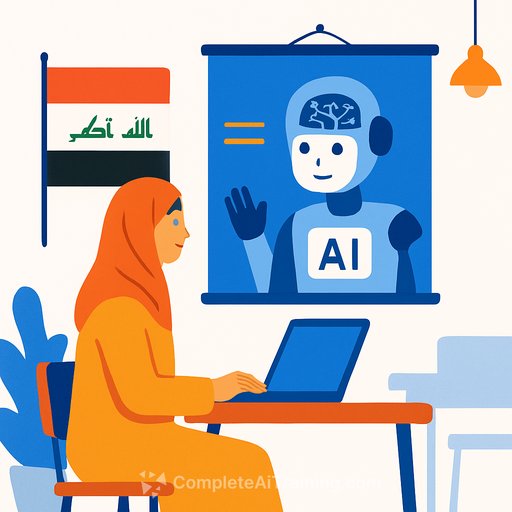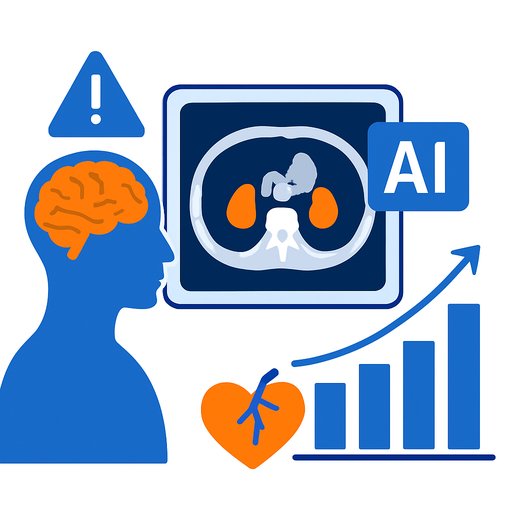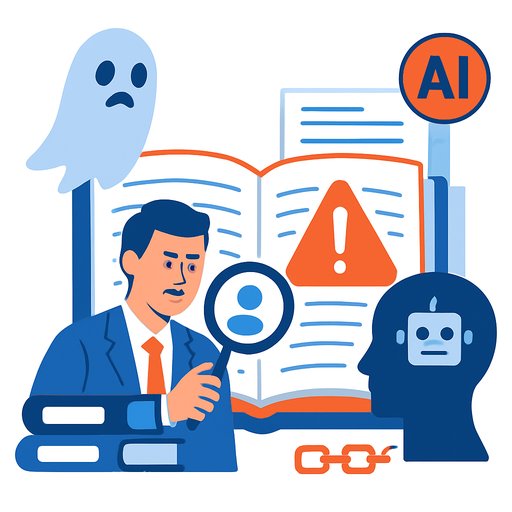Iraq’s Higher Education Steps Into the AI Era: Opportunities and Challenges
Artificial Intelligence (AI) has moved from theory to an essential part of global economies and knowledge systems. Iraq, recovering from decades of conflict and institutional challenges, is beginning to integrate AI into its higher education sector with cautious but clear initiatives.
The Ministry of Higher Education and Scientific Research announced plans to establish two new colleges at the University of Baghdad: the College of Excellence and the College of Artificial Intelligence. Both are scheduled to open in the 2025–2026 academic year. This marks a significant effort to modernize higher education and prepare students for a digital economy.
New Academic Programs Focused on AI and Related Fields
The College of Excellence will offer diverse programs including data science, e-business management, banking, philosophy, and sociology. The College of Artificial Intelligence will concentrate on engineering applications, biomedical technologies, and big data analytics. The ministry has set an August 20 deadline to complete logistics and faculty appointments, with admission criteria aimed at attracting top students.
Minister Naeem Abd Yaser al-Aboudi highlights that this initiative is about aligning Iraq’s academic institutions with global technological changes and equipping graduates with skills relevant to modern digital markets.
Expanding AI Education Across Iraqi Universities
Other universities are also integrating AI into their offerings. The University of Warith al-Anbiyaa in Karbala launched an AI department that has gained strong student interest. The Middle Technical University in Baghdad offers courses in cybersecurity and AI. The American University of Baghdad secured international funding to develop an Innovation Lab focused on digital intelligence and engineering. Al-Iraqia University added AI journalism to its media faculty.
These efforts indicate the early stages of an AI academic ecosystem that may drive Iraq’s progress into the digital age.
From Fragmented Efforts to a National AI Education Program
Policymakers emphasize the need to transform these scattered initiatives into a unified national program. Firas al-Muslmawi, a member of the parliamentary Higher Education Committee, suggests the new colleges should serve as replicable models with standardized curricula. He stresses AI’s applications in medicine, urban planning, and knowledge production as reasons for embedding AI education across universities.
Challenges in Infrastructure and Expertise
Academics warn that ambitions must be matched by practical capacity. Alaa Najah, professor at the University of Baghdad’s College of Media, welcomes the new colleges but points to critical needs: reliable infrastructure, steady electricity, and qualified faculty. He underscores the importance of training local instructors and recruiting international experts to prevent technological illiteracy.
Student Perspectives: AI as a Path to Employment
Students view AI education as a way to escape Iraq’s stagnant job market. Hassan Sarmad al-Ghazi plans to apply to the College of Artificial Intelligence to secure stable employment outside public-sector jobs. Israa Ibrahim sees digital skills opening doors to remote work for international companies and better-paying roles in local industries.
AI Education Linked to National Strategy
Iraq’s national AI strategy also backs this educational push. The Ministry of Interior established a Cybersecurity Directorate in 2022 to address rising cyber threats, managing digital forensics and AI-based threat detection. Thousands have been trained in cybersecurity roles.
In 2024, the government drafted the National Strategy for Artificial Intelligence (INSAI), aiming to integrate AI across healthcare, agriculture, tourism, and education. The University of Baghdad’s new colleges fit into this broader framework, contributing to Iraq’s digital development.
Ongoing Obstacles to AI Advancement
Despite progress, significant hurdles remain. Educational technology expert Dr. Mohammad Awada notes that although internet penetration exceeds 80%, network instability and frequent shutdowns disrupt digital services, especially during exams. Many universities still lack reliable electricity and modern labs, relying on aid for solar power solutions. Brain drain reduces the pool of qualified faculty in AI and related fields.
Another concern is the absence of a legal and ethical framework for AI use in Iraq, raising issues around research standards and data security.
Regional Context and Future Outlook
Studies show AI-based teaching can enhance academic performance when backed by institutional support and funding. At Al-Nahrain University, faculty support AI integration as a way to move beyond outdated teaching methods.
Compared to neighbors like the UAE, Saudi Arabia, Iran, and Türkiye — all with established AI strategies — Iraq’s efforts are still in early stages. The UAE created the world’s first Ministry of Artificial Intelligence in 2017, Saudi Arabia’s SDAIA manages significant AI investments, and Iran continues AI research despite sanctions.
While Baghdad’s initiatives may appear modest, they reflect a growing awareness that excluding AI from Iraq’s academic and economic sectors could deepen marginalization and dependence.
For professionals in science and research looking to expand their AI expertise, exploring comprehensive training options can be beneficial. Resources such as Complete AI Training offer courses that cover various AI fields and skills aligned with current industry demands.
Your membership also unlocks:






